These are all my nuggets of wisdom and travel tips that I wish I could impart to a younger me before embarking on that first big trip 20 years ago!
I'll never forget that first time I went on my first trip with Stefan over 15 years. We were a young, twinkle-eyed twentysomething couple, brimming with excitement! In those early days, we scoured the net for the best tips on staying safe when traveling and invested in every travel hack gadget we could think of (the memory of our trusty money belts snugly hidden under our trousers comes to mind)…
We both agree that those early days backpacking in Asia together were some of our favorite memories. Not that we don't still relish our travels today; of course, we still do! It's just that nothing beats the novelty of your first time.

Today we travel differently. A lot of the things we did in our 20s we no longer would dream of doing in our 40s. While hostels once held an allure, I now crave my personal space with certain luxuries. Shared bathrooms? No, thank you! A backpack used to be fun, but today I couldn't imagine life without my trusty four-wheel suitcase, effortlessly maneuverable without burdening my spine. And don't get me started on Business Class v Economy…
With almost two decades of globe-trotting experience alongside my Stefan, I stand here today armed with a treasure trove of insights. These invaluable tips have been accumulated through extensive research and, admittedly, a fair share of silly mistakes along the way.
So, these are my 10 best travel tips that I, a 40-year-old Sebastien, wish I could impart to the 20-year-old me before embarking on that initial journey.
1. If the airline is late, you can claim compensation!
Normally we don’t bother with compensation for slight delays, but when I recently discovered that we could just hand over everything to a company like AirHelp and let them pursue it, we were kicking ourselves for not knowing about this sooner!
In a nutshell, if your flight is delayed or canceled, you are often entitled to compensation – up to €600! Especially in regions like the UK and EU, it's not just a courtesy; it's the law. Airlines are obliged to provide you with essentials such as food, drink, accommodation, and monetary compensation if your flight faces a delay exceeding 3 hours – no matter the reason.
Let's face it, when grappling with a delayed flight, the last thing on our minds is researching our rights. In addition, once I've finally reached my destination, I just want to get on with my trip and put a line under a negative airline experience. This is why I love AirHelp. With a dedicated team ready to pursue the airline on our behalf, they not only ensure compensation but also offer perks such as lounge access during delays, swift payouts for lost luggage, and various other benefits, including discounts on eSIMs.
The real kicker? AirHelp acts like your personal team of tenacious rottweilers—they stop at nothing until they achieve results, even if it takes months. In an industry where airlines often try to frustrate and delay the claims process, counting on AirHelp becomes crucial.
If you're traveling in Europe especially, it's always worth checking if you're owed money (up to €600 per person don't forget!) as the laws apply to everyone traveling within or out of Europe, no matter where you call home.
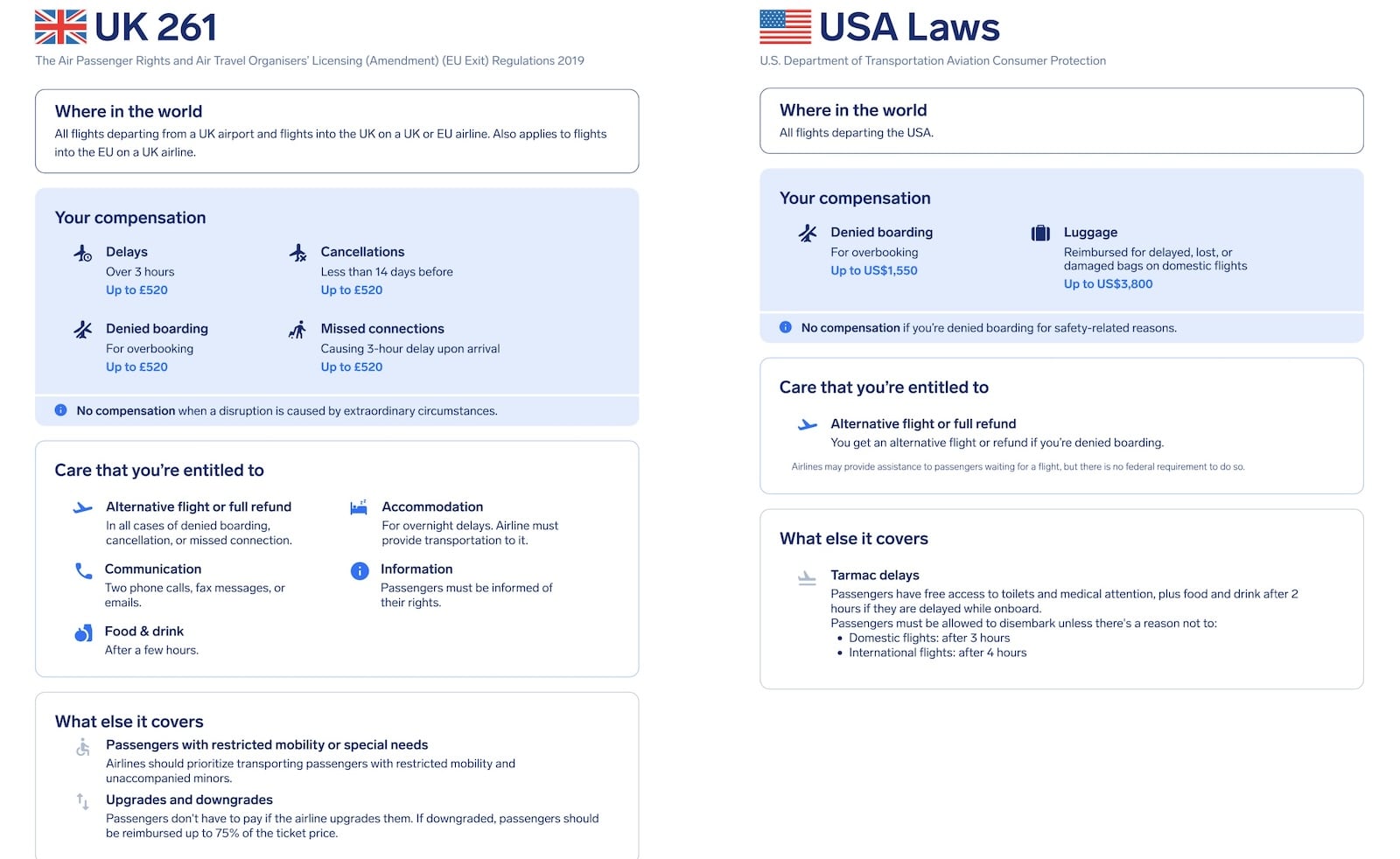
2. Always get travel insurance!
It’s not a matter of discussion. However long or short your trip is, just get it. It’s a small investment that can spare you a truckload of troubles in case things take an unexpected turn.
During our first big trip in Asia, a pesky mosquito bite in Sri Lanka left me bedridden with a high fever for nearly two weeks. I was in and out of the hospital, Stefan was beside himself with worry and distress the entire time.
Stefan was even more beside himself with worry and distress when the hospital's medical bill was handed to us. Thankfully I was able to bundle off the receipts to our insurance company, make a claim, and voila, a significant chunk of money was refunded!
Fast forward a few years, we found ourselves in downtown Bogota engrossed in a free walking tour (more on this below) and relaxing in a cafe. In a moment of oversight, Stefan left his rucksack unattended on the seat behind him. Moments later, when he reached for his bag to pay for coffee, it had vanished! Inside his bag was $150 worth of cash, his battery pack, raincoat cover, and his cherished blue-footed boobie cuddly toy he insisted on carrying around with him. The staff were lovely about it. They called the police, we watched the CCTV footage and saw a group of youngsters grab his bag. The policeman helped us file a claim, which we were then able to use to claim the $150 cash.
Whilst Stefan wasn't able to recover his boobie, thanks to our travel insurance we were able to recuperate another chunk of cash that would have otherwise been lost forever.
The best part is that travel insurance is not expensive. It won't set a hole in your budget and is easy to obtain. So, my unequivocal advice: just do it! Make sure you have a policy in place for every single trip you do. Be sure to check out our guide on choosing the best travel insurance.

3. Quality over quantity: don’t try to do everything!
It's better to do one thing well rather than stressing yourself to do everything.
I was particularly guilty of this when we started traveling. I'm the planner of our duo and always come up with a Bucket List of must-see things I want us to tick off for every place we visit. At the start, this worked a treat because we were both excited to hit up a new destination where we wanted to see and do everything.
Very quickly we realized how exhausting it can be to navigate a new city, trying to work out how to get from A to B. This is made 100 times more challenging if there's a language barrier; and 1000 times harder when you're jet lagged! Nonetheless, we powered on resulting in a whole heap of photographs of different buildings that we forgot the name and relevance of, and instead ended up arguing over silly insignificant things. Arguments usually stemmed from me being frustrated that we would not cover everything on my travel bucket list versus poor Stefan who was pushing for us to slow down and rest.
Stefan's wise words became my reality check:
“Seby what's the one thing you'd regret not doing if we were to leave here tomorrow?”
In other words, from everything on my travel bucket list, what was the one experience that truly mattered to me?
More importantly, what's the value of having hundreds of picture-perfect Instagram shots of something when its significance eludes you, and you have no real long-lasting memory of it?
With time, we learned to trim down the number of activities crammed into our trips, focusing on those we would genuinely regret not experiencing.
While crafting a detailed list of things to see in a new place is admirable, I wish I had the foresight in my younger days to understand that the quantity of experiences doesn't necessarily trump their quality.

4. Unlocking airline miles, reward schemes + mistake fares
That bit in the intro when I mentioned flying Business Class? Bet your immediate response was “That sounds great, Seby, but not all of us can afford to fly Business Class all the time!”…and I'm right there with you!
However, being savvy about airline reward schemes and mistake fares can make luxury travel more accessible. I'm particularly passionate about this, willing to invest the time needed to research the best credit cards for airline miles and to uncover any airline pricing glitches.
Being UK (Europe) based, our options for credit card airline points are somewhat limited. The standout choice for us is AMEX, earning British Airways AVIOS points with every purchase. On the other side of the pond, the United States offers a plethora of credit cards that you can easily sign up for, accumulating airline miles through your daily expenses. These miles can then be translated into free flights, upgrades, discounted business class flights, lounge access, and more.
We didn't fully commit to collecting airline miles until later in our travels. Looking back, all those long-haul flights we took could have translated into a substantial points stash, now lost forever!
Mistake fares are when an airline accidentally sells a ticket for significantly worse than intended. I have set up alerts from websites like Secret Flying and Google Flights, which has allowed me to spot these and book budget-friendly business class flights worldwide. For example, we flew from Cairo, Egypt to Sydney in 2023 to celebrate Stefan's birthday, and then the return from Auckland in New Zealand to Doha, Qatar – all in business class. Another favorite of mine, flying ANA Business Class from Tokyo to London.
The key is to act swiftly when a mistake fare surfaces and, of course, to remain flexible in your travel plans.
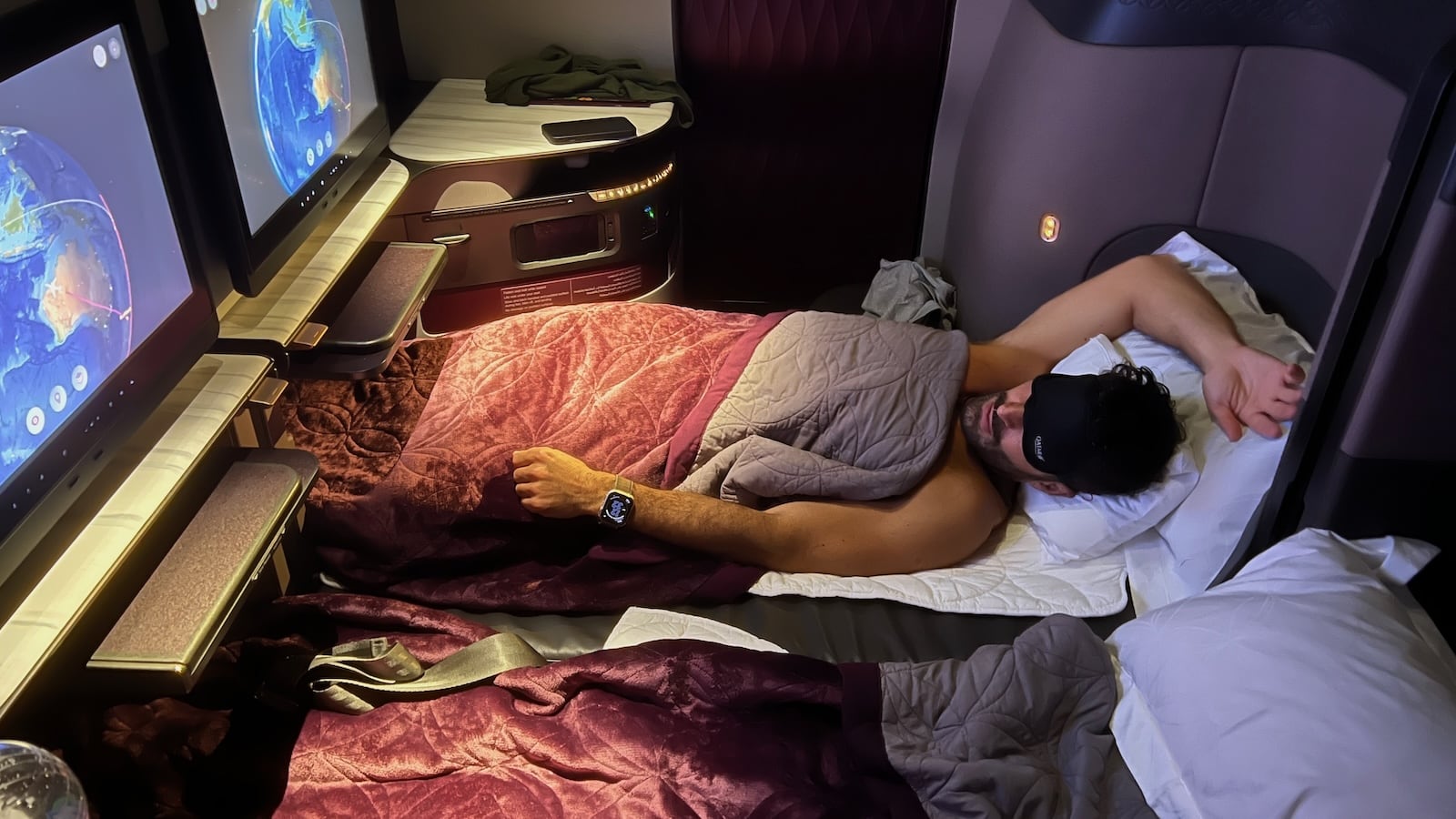
5. Contact the hotel directly for a cheaper deal
We're avid users of hotel booking platforms like Booking.com and Agoda, drawn by the perks that come with achieving ‘Genius' status such as free breakfast, free cancellation, complimentary taxi pickups, and occasional room discounts. These platforms are especially handy when needing proof of a hotel stay for visa applications, offering the flexibility to change or cancel reservations.
After staying in a few hotels, we were told by many hotel owners to book with them directly if returning and they would offer us a better rate. The reason, hotels pay commissions to booking websites for each reservation, so booking with the hotel directly allows them to bypass this fee, enabling them to offer rooms at reduced rates.
Armed with this knowledge, our strategy evolved. We'd use Booking.com to scout the best hotels in our desired area and then reach out to them directly, inquiring about potential discounts. More often than not, they came through, offering us a saving of around 15-20% if we booked with them directly. It's worth noting that this approach rarely works with larger hotel chains who simply told us to stick with the online booking platform for guaranteed lower rates.

6. Get connected: a SIM card on arrival
Gone are the days when we would rock up at a place with nothing to guide us than the Lonely Planet and a few maps we picked up from the airport. Today, our smartphones are the epicenter of our daily lives. We use them to orientate ourselves with Google Maps, they've become our cameras, our alarm clocks, our music player, weather monitor, currency convertors…
While the convenience of having internet access for navigation or snapping photos is undeniable, the real game-changer is having it in emergencies. Or, say, when you need to (ahem!) monitor an Indian tuk-tuk driver in Jaipur, India who has deliberately taken a wrong route so that he can steer you to his cousin's shop…
Whether it’s a brief weekend trip or an extended two-week vacation, having a local SIM not only allows me to have internet access but also gives me a local number. This comes in handy for calling up a highly-rated restaurant to reserve a table or using taxi apps that often require a local number for registration. Another time I realized the importance of having a local number was during our road trip to New Zealand. We rented an electric car (which we strongly advocate against!) and were desperately trying to find a charger to top it up. Annoyingly most charging stations in New Zealand only work if you first sign up in an app via a local New Zealand number.
Today, the first thing we do after we've retrieved our suitcases at a new airport: is go to an ATM for cash and then buy each a local SIM card. In most places, SIM card deals are inexpensive and usually offer a tourist package providing unlimited internet for a specified period. Once you're online, be sure to check out our handy guide to the best gay travel apps you need to download!
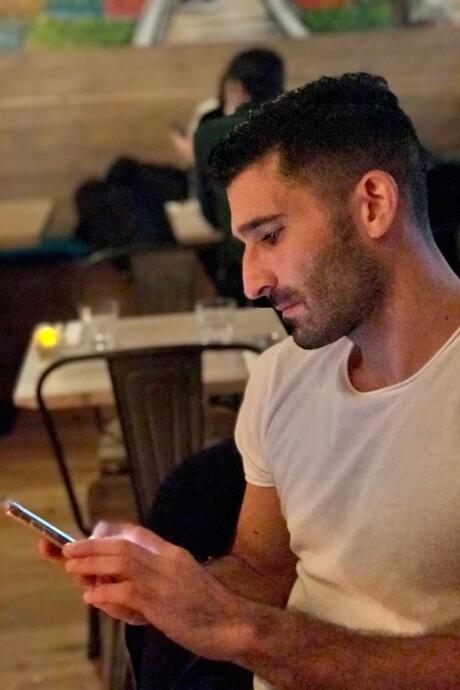
7. Don't overpack: plan for 1 week’s worth of clothes
Stefan and I often chuckle at the memory of our younger selves, agonizing for days over what to pack for a trip. Multiple pairs of jeans, an assortment of shoes, an abundance of socks and underwear—only to find that a fraction of our meticulously packed wardrobe ever saw the light of day.
What I've come to realize over the years is that planning for no more than one week's worth of clothes is more than sufficient. Virtually every place you visit offers local laundry services, and in a pinch, emergency handwashing can save the day. Packing fewer outfits not only simplifies your life but also significantly reduces the size of your suitcase.
The only exception is if you're traveling from one extreme climate to another. For example, last year we began a trip in the hot and humid climate of Cairo and then headed to the cold, mountainous landscapes of New Zealand. This required two vastly different sets of outfits, but another tip we picked up from trekking in Nepal and our winter road trip in Iceland, it's better to have layers for cold climates such as a fleece, windbreaker jacket, thermals, rather than lugging around a bulky, thick jacket. This not only conserves space but also provides flexibility for adapting to varying temperatures.
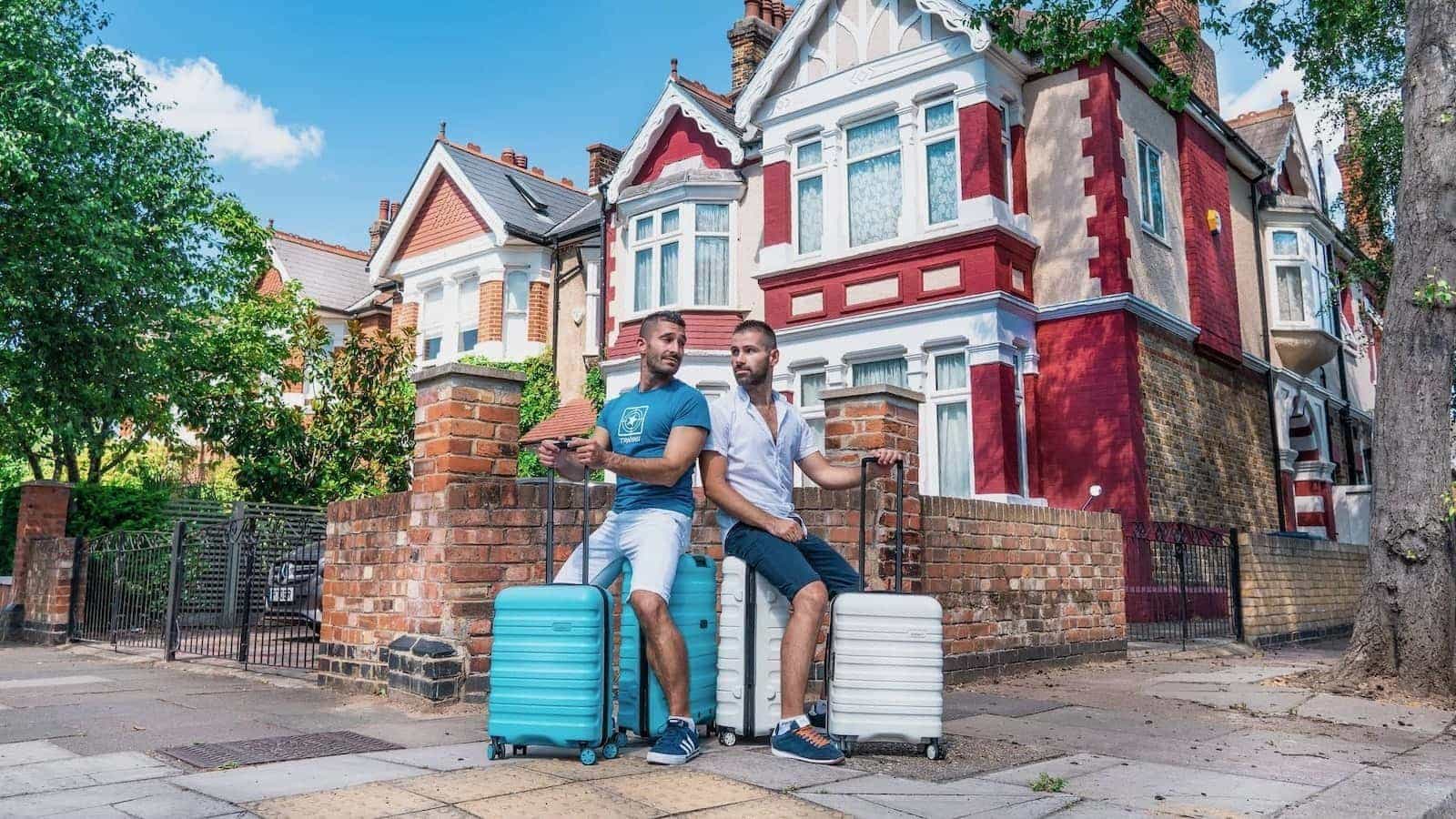
8. Embrace the power of packing cubes!
A game-changing tip I wish I'd known from the get-go: packing cubes!
Credit goes to Stefan for introducing me to these little wonders, and let me tell you, they've been a travel game-changer. Packing cubes are compact zippered bags in various sizes designed to help you organize your clothes and toiletries in your suitcase. Not only do they make the packing process a breeze, but they also bring efficiency to a whole new level. No more rummaging through your suitcase in search of that elusive pair of socks—everything has its designated cube.
Give it a shot, and you'll quickly understand what I mean. Consider it my gift to your future travels!
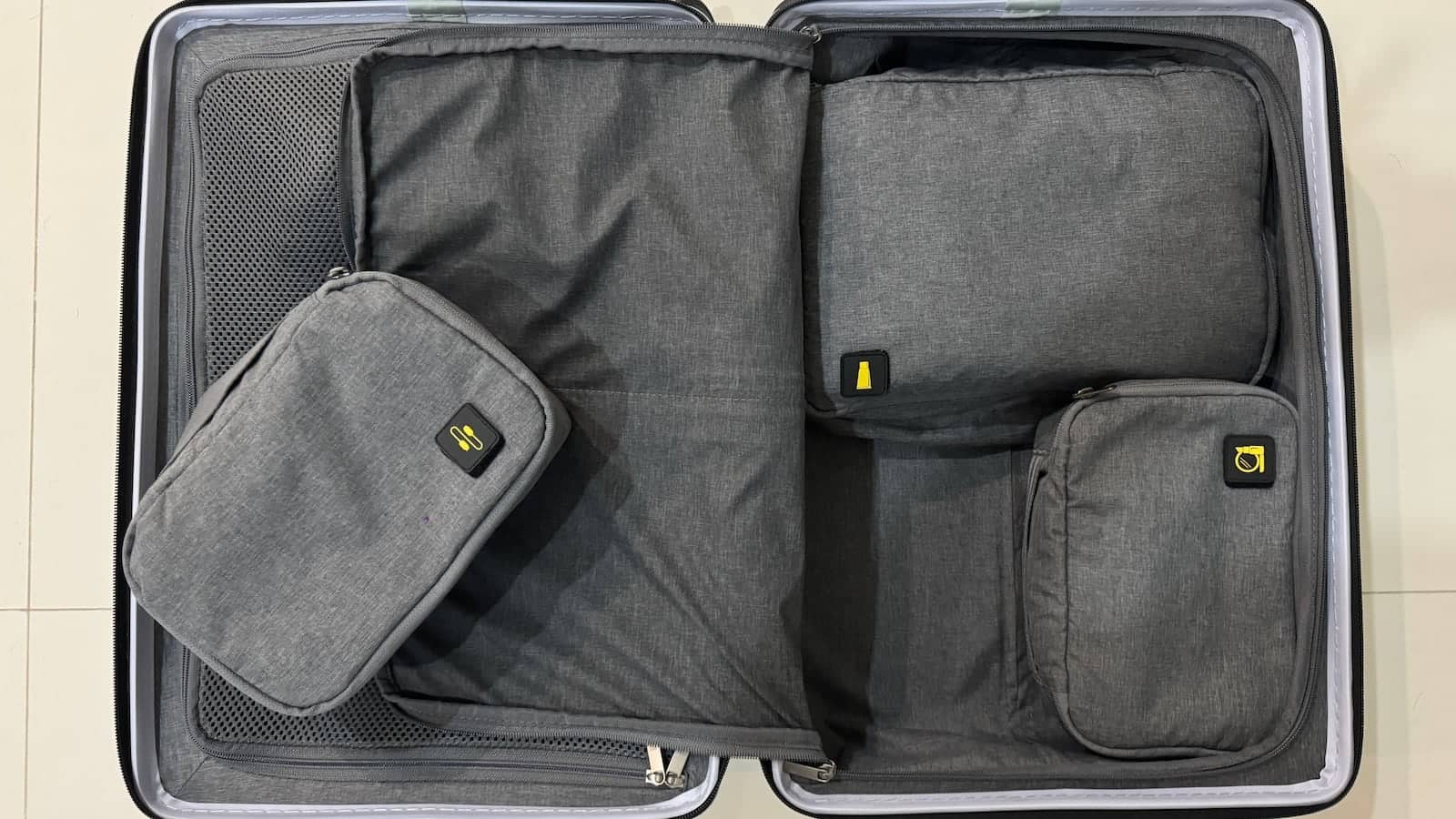
9. Check out the local Free Walking Tour
Free Walking Tours are one of the best discoveries we made from our travels. It is a concept that started in Germany many moons ago and has now spread to almost every city in the world. It's the first activity I plan for us in every new destination: a simple Google search for ‘free walking tour' and the name of the place we're in.
Don't be misled by the name; these tours aren't entirely free. Instead, they operate on a ‘you're free to tip as much as you think it's worth' basis. The tours are organized and led by locals, ensuring that the money you contribute goes directly to a local individual rather than a large external corporation. We always encourage generous tipping for this very reason.
More importantly, these tours are a fantastic way to orient yourself in a new place, visit the major sightseeing highlights with a local, and obtain invaluable tips on where to eat. The guides we've encountered who run Free Walking Tours are usually students, teachers, or enthusiastic locals who take pride in showcasing their hometown to the world.
The best part, we've always made friends with like-minded fellow travelers in the group, often going for drinks/dinner afterward and then keeping in touch over Instagram. For this reason, Free Walking Tours are particularly handy for solo travelers looking to connect with others as Stefan found out during his solo trip to Armenia.

10. Don’t sweat the small stuff!
In the grand adventure of travel, plans are bound to change. Trains might run late, buses break down, your tour guides get sick, you'll get sick, a global pandemic may break out(!), or Icelandic volcanic ash could disrupt flights (remember the Eyjafjallajökull volcano in 2010?).
The crux of it all is that unforeseen circumstances are part and parcel of the journey, and there's no use getting bogged down by them. I used to let alterations to my meticulously crafted travel plans stress me out to no end. However, over time, I've learned to go with the flow and tackle each scenario as it unfolds.
That's the beauty of travel—it thrusts you beyond your comfort zone, confronting you with a new set of circumstances you've never encountered before. This journey has shaped me into a more patient and easy-going person than the 20-year-old me who first strapped on a backpack all those years ago. So, as you embark on your adventures, remember: don't sweat the small stuff; embrace the unpredictability, for therein lies the joy of the journey.
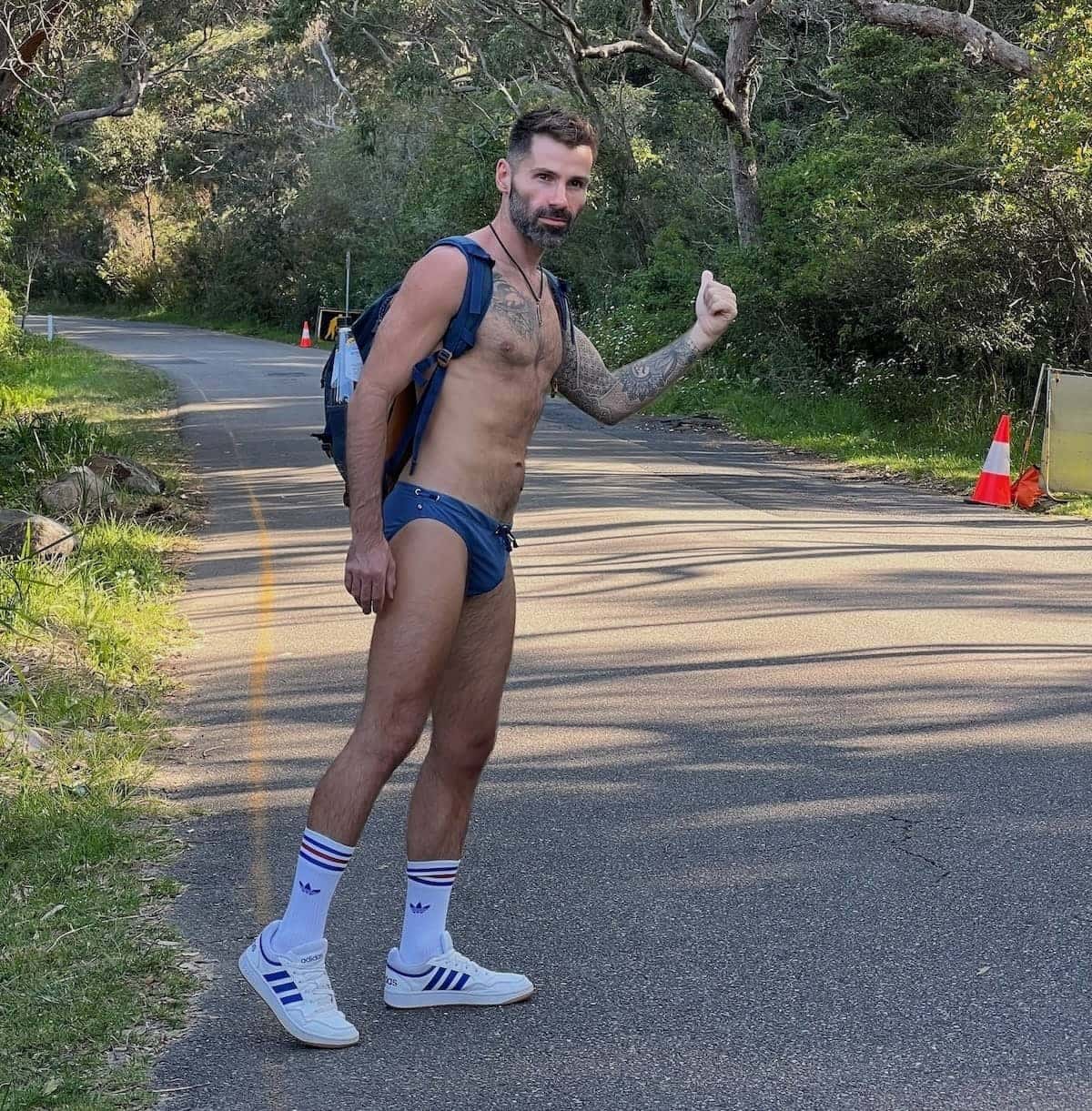
Read more travel adventures like this in our book!
We've published our very own gay travel book called, ‘Out in the World'. It has all our practical safety tips, first-hand advice, and travel stories from some of our favorite destinations.
We hope it inspires you to have a fun and safe trip!
Click on the book to order:

For more inspiration:
- See if you agree with our list of the gayest countries in the world
- Contrast this with the places we rate as the most dangerous countries for gay travelers
- Read our guide to the best gay beaches in the world
- Curious how we met? Read my story of how I met the love of my life back in 2009
- Using your phone to hook up abroad? Then take heed of our safety tips for using gay dating apps!


David Crump
Wednesday 1st of May 2024
Thanks so much for this advice. I'm going to Ecuador and Peru in August. Answered some questions and gave me great ideas!!
Stefan Arestis
Wednesday 1st of May 2024
So pleased :)